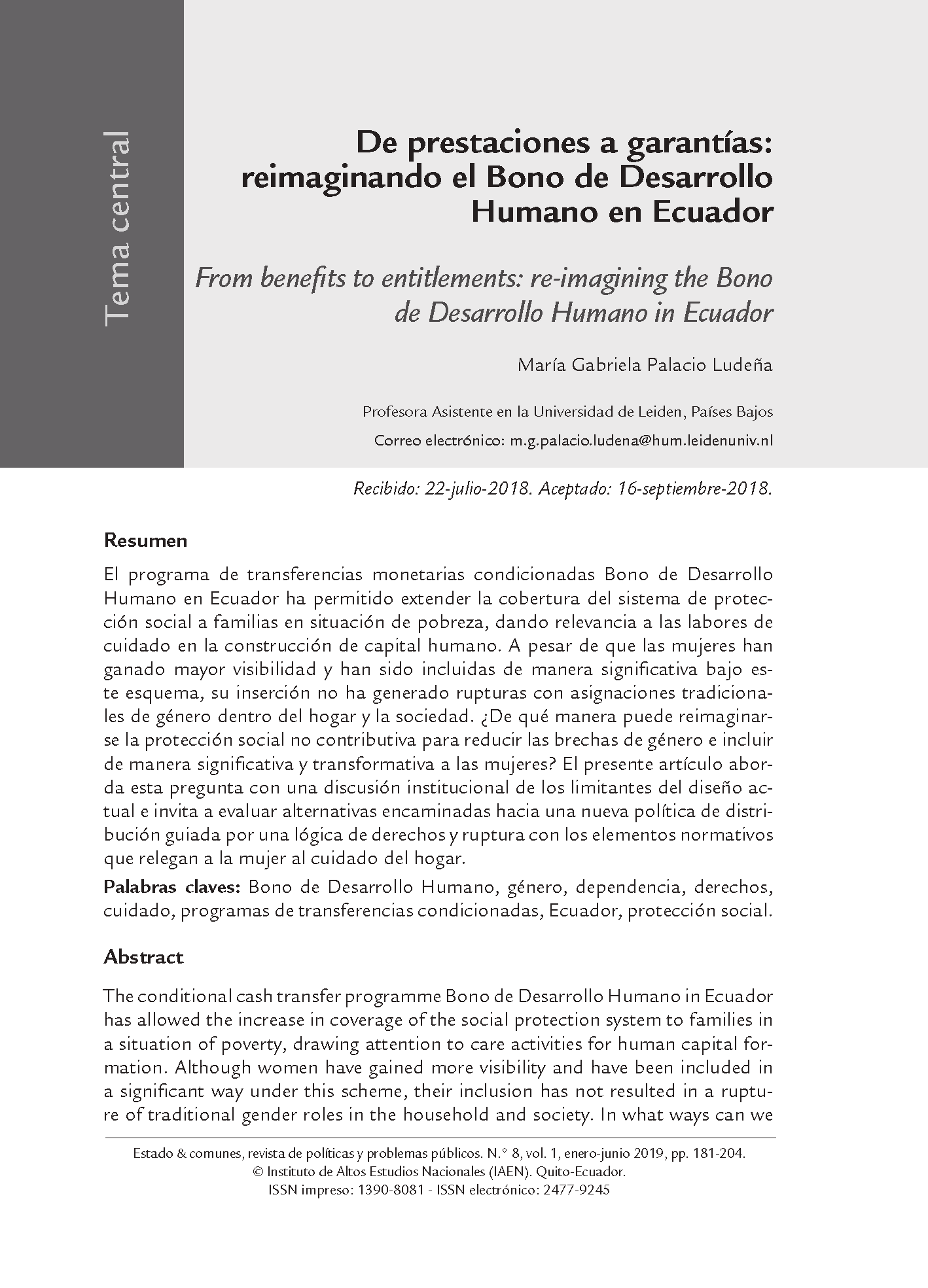De prestaciones a garantías: reimaginando el Bono de Desarrollo Humano en Ecuador
Contenido principal del artículo
Resumen
El programa de transferencias monetarias condicionadas Bono de Desarrollo Humano en Ecuador ha permitido extender la cobertura del sistema de protección social a familias en situación de pobreza, dando relevancia a las labores de cuidado en la construcción de capital humano. A pesar de que las mujeres han ganado mayor visibilidad y han sido incluidas de manera significativa bajo este esquema, su inserción no ha generado rupturas con asignaciones tradicionales de género dentro del hogar y la sociedad. ¿De qué manera puede reimaginarse la protección social no contributiva para reducir las brechas de género e incluir de manera significativa y transformativa a las mujeres? El presente artículo aborda esta pregunta con una discusión institucional de los limitantes del diseño actual e invita a evaluar alternativas encaminadas hacia una nueva política de distribución guiada por una lógica de derechos y ruptura con los elementos normativos que relegan a la mujer al cuidado del hogar.
Descargas
Detalles del artículo
Cómo citar
Número
Licencia
Derechos de autor 2019 María Gabriela Palacio Ludeña
CC BY-NC-SA. Esta licencia permite compartir, copiar, distribuir, ejecutar y comunicar públicamente la obra, además de hacer obras derivadas.











